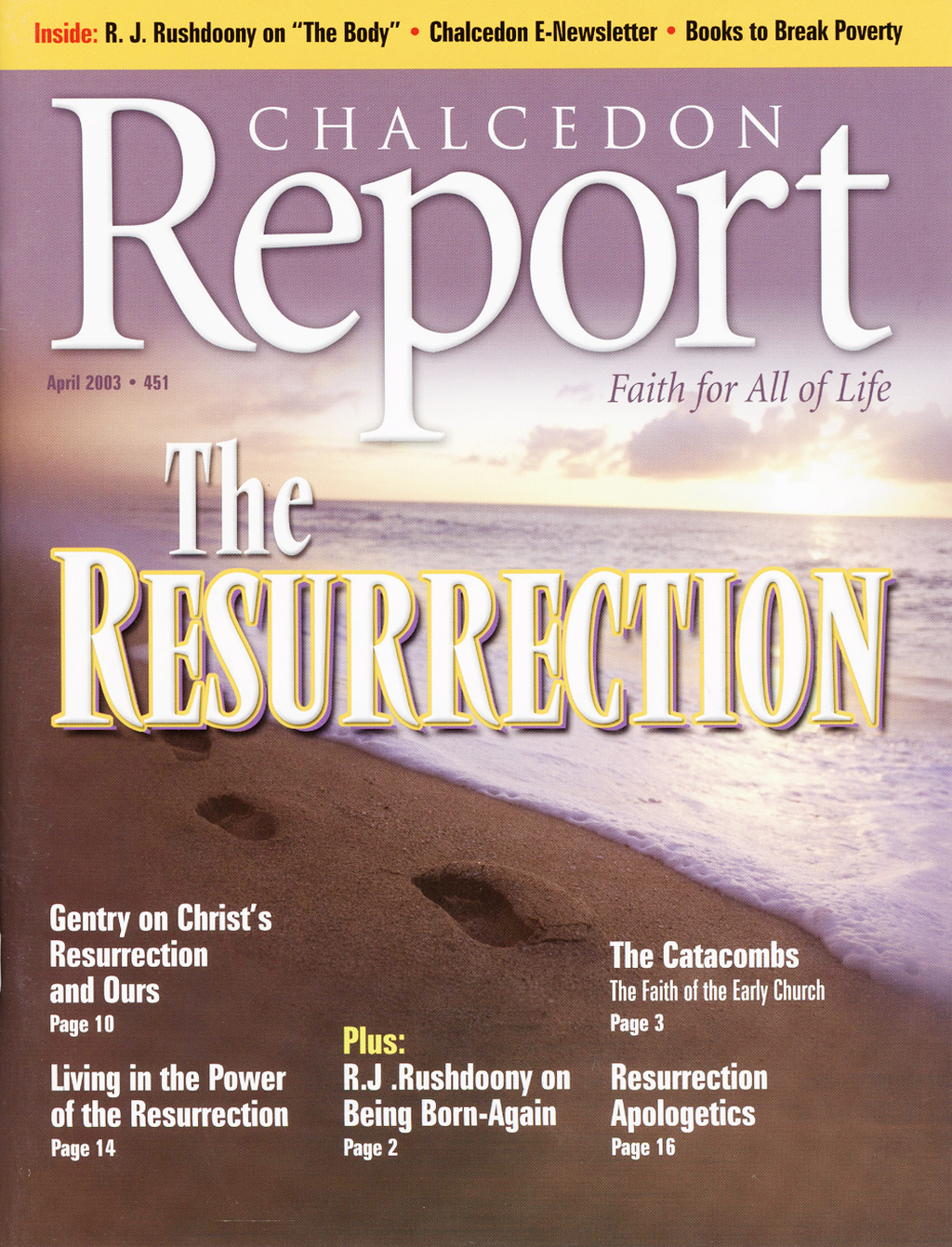
Magazine Issue
April 2003 Articles:
Except a Man Be Born Again

- R. J. Rushdoony
Faith in the Catacombs

- Mark R. Rushdoony
Education for the Kingdom of God: Teaching Character Through Literature
- Ron Kirk
The Resurrection
- Samuel L. Blumenfeld
Christ's Resurrection and Ours
- Kenneth L. Gentry, Jr., Th.D.
After the Resurrection
- John Stoos
Resurrection Apologetics
- Ian Hodge
Glorious Christian Hope Prior to the Resurrection
- Eugene Clingman
A Christian America: Earl Warren and Our Christian Roots
- Roger Schultz
The Body

- R. J. Rushdoony
Prophecy and the Power of Myth
- Greg Uttinger